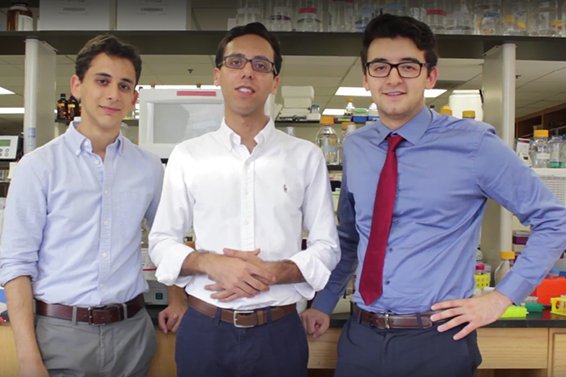HELP A YOUNG ZOROASTRIAN TO GET INTO A SPACE PROGRAM!
We hope you will disseminate the following to your colleagues, friends and family,and urge them to contribute to this worthy project.Garshasb (Gary) Soroosh, studies Physiology and Neurobiology as a senior at the University of Maryland, College Park. He has been conducting biomedical research at the National Institutes of Health for 5 years, leading projects that ranged in focus from molecular neuroscience to microbial pathogenesis. In addition to research, Gary dedicates much of his time as a leading member of RAD-AID International, a global health nonprofit committed to improving access to radiology in developing regions of the world. On campus, he is president of the American Society for Microbiology Student Chapter, Quality of Care Representative to the University Health Center, and a member of the Student Health Advisory Committee, in addition to volunteering at free clinics in the College Park area. In his free time Gary enjoys writing, playing golf, and performing classical Persian drums. Gary has represented FEZANA at the United Nations at the World Summit of the Information Society, (WSIS +10) at the UN Headquarters in New York in December 2015 . Details of this participation are reported in the Fezana Journal –summer 2016 issue (which is themed on “Mehrgan”).
The Project
Not knowing exactly how and why bacteria behave differently in space poses a serious risk for astronaut safety. The projectgoal is to understand, on the molecular level, how bacteria change the expression of their genes in space, focusing on why they move more easily in microgravity. After having been selected finalists in the UMD Student Spaceflight Experiments Program Mission 10, in February of 2017 these young scientists will send an experimental capsule containing dormant bacteria to the International Space Station. The bacteria will grow in space, where they will adapt to this microgravity environment, and then will be returned to Earth for analysis. A powerful technique called RNAseq will be used to analyze bacterial gene expression patterns; by running the same experiment in parallel on Earth, scientists will essentially be able to observe any and every difference in bacterial gene expression caused by microgravity. This work can contribute to astronaut safety on long-term voyages.
A guaranteed spot on a rocket to take the experiment to the International Space Station is availabe, and this campaign is key to obtaining funds for analysis after receiving the bacteria from space. Your generous contribution will help fund experimental procedures, costs associated with data analysis and publication of findings, and allow the team to be in Launch Control to supervise experimental deployment from Cape Canaveral, Florida.
Best,
Behram Pastakia, MD, FACR
Co-Chair, FEZANA UN-NGO committee
Click here to donate to this project now
Published on Zoroastrians.net





